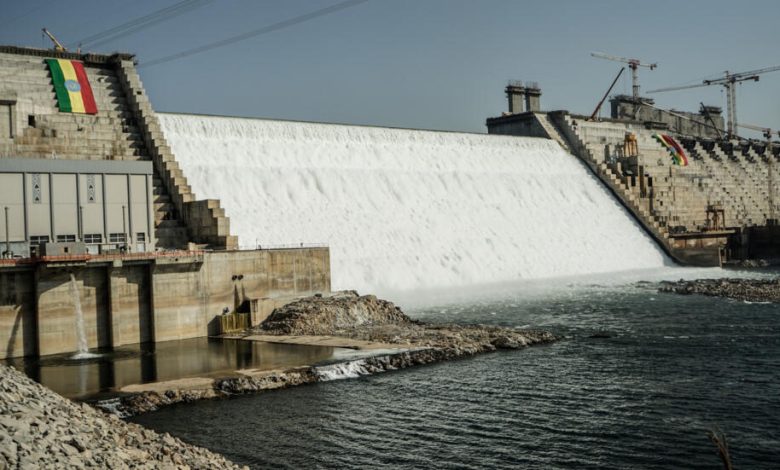Expert Criticizes Sudan and Egypt Position from GERD

Sudan Events – Rehab Abdullah
Firmer member of the International Committee for the GERD Ahmed Al Mufti said that the current round of negotiations did not accomplish 1% of the task, at a time when it was required to complete 75% of the task.
He criticised Sudan’s weak role in the negotiations and told (Sudan Events) that Sudan attends the meetings to prove its existence only, and attributed this to his saying that he is convinced that the dam will bring Sudan maximum benefits, most notably 3 agricultural cycles a year and electricity at reduced prices. He then added, “And I am still convinced of this, even though reality confirms that nothing that Sudan dreams of will happen.”
Al-Mufti affirmed failure of the negotiations to Sudan and Egypt, and a 100% success to Ethiopia, because it did not agree to the minimum level demanded by Egypt. Sudan timidly shares that request, and obligated Ethiopia to adhere to filling and operating rules and certain guidelines, indicating that Sudan did not benefit from Ethiopia’s response for those rules and lines. This is because they represent a small percentage of other claims that have not been claimed, including compensation for any tangible damage caused by the dam, and how to deal with the collapse of the dam if it happens, for natural or technical reasons.
Al-Mufti also pointed out that in the past there was hope that Ethiopia would respond to the modest demands of Egypt and Sudan, but after the fourth filling, Ethiopia has the water bomb, which makes it reject any requests from Egypt or Sudan. He stressed that this matter has been clear since the signing of the Declaration of Principles for the Renaissance Dam in 2015, which stipulates that filling will not take place except after agreement with Sudan and Egypt on the rules and guidelines. However, it did not adhere to that, despite the demand of the UN Security Council and the African Union for it, and Egypt and Sudan surrendered.
In addition, Al-Mufti criticized the failure of Sudan and Egypt to take any step to force Ethiopia to respond to their legitimate demands, as it acts as if they do not exist. He considered that the results of the negotiations became known before they began, which is Ethiopia’s continuation of its unilateral actions, and Sudan and Egypt’s surrender to that, which makes their surrender a waiver of their water rights. He expected that the Sudanese and Egyptian citizens would soon feel its negative effects.



